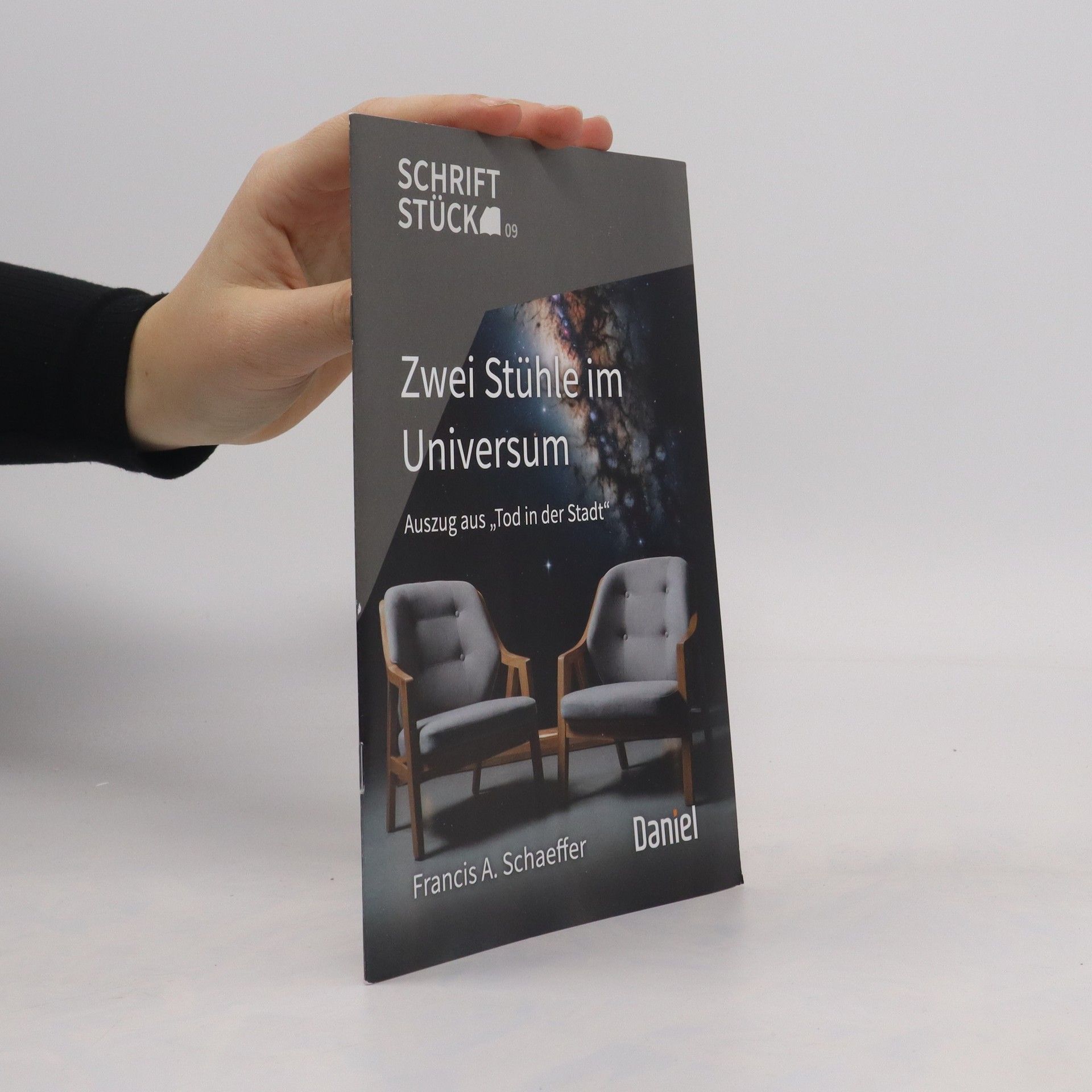Zwei Stühle im Universum
- 20 pages
- 1 hour of reading
Francis A. Schaeffer war ein brillianter Denker. So sah er in seinem Buch „Wie können wir denn leben?“ eine antigöttliche Entwicklung voraus und umriss sie klar. In diesem Heft geht es nun um einen Auszug aus seinem Buch „Tod in der Stadt“. Das, was Schaeffer so herausragend macht, ist eben nicht nur sein scharfsinniges Denken, sondern die Fähigkeit, scheinbar komplizierte Sachverhalte einfach und verständlich auszudrücken. Genau das ist ihm in dieser Geschichte so meisterhaft gelungen. All unsere weltanschaulichen Diskussionen lassen sich auf exakt diesen Sachverhalt reduzieren: Es gibt nur zwei Stühle – und die Frage ist, auf welchem der Beiden sitzt du!?



